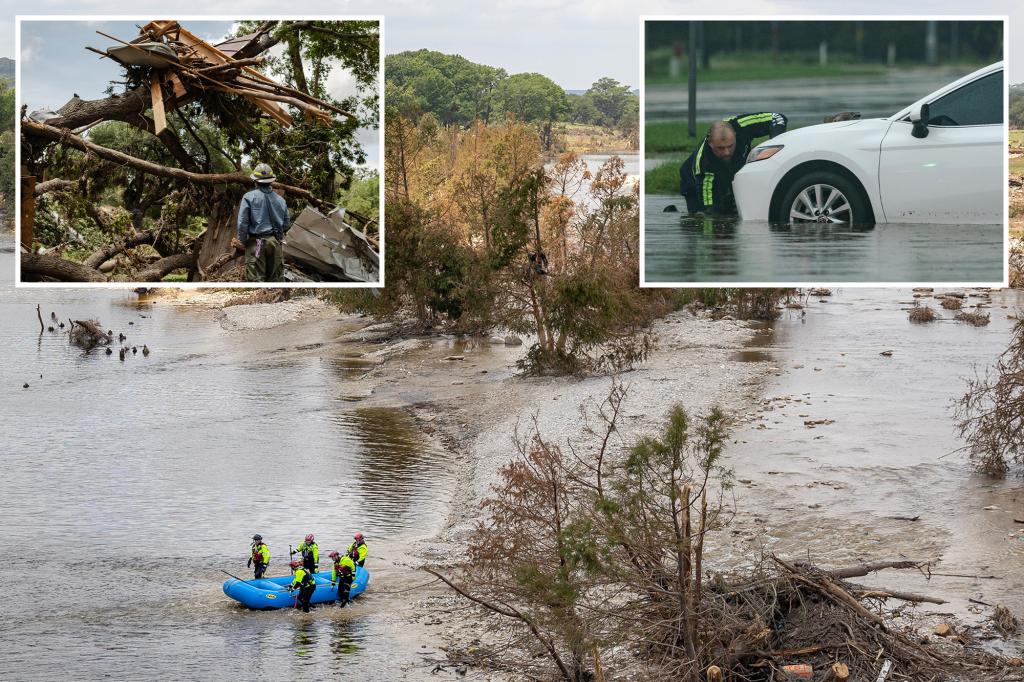Devastation in Mayotte: The Aftermath of Cyclone Chido
The island of Mayotte, situated in the Indian Ocean between Madagascar and Mozambique, is currently grappling with the devastating aftermath of Cyclone Chido. With at least 11 lives lost and significant infrastructural damage reported, the cyclone has raised pressing questions about the island’s preparedness for such natural disasters and the future for its residents. As recovery efforts commence, it is crucial to analyze the factors that contributed to this tragedy and explore potential strategies for enhancing resilience against future cyclones.
The Impact of Cyclone Chido
Cyclone Chido made landfall with ferocious winds and heavy rainfall, wreaking havoc across the island. The French Interior Ministry’s report of fatalities is a grim reminder of the cyclone’s lethal force. Residents were caught off guard, and many were unable to evacuate in time due to the cyclone’s rapid intensification.
The cyclone’s impact extended beyond human casualties. The infrastructure has suffered extensive damage, including:
- Destruction of homes and public buildings.
- Disruption of essential services such as electricity, water supply, and telecommunications.
- Significant damage to roads, making access to remote areas difficult for rescue and recovery teams.
- Impact on agriculture, which is vital for the local economy and food security.
Humanitarian Response and Recovery Efforts
In the wake of the disaster, the French government has mobilized resources for emergency response and recovery. Aid from the mainland is being coordinated to provide immediate assistance to affected communities. Efforts include:
- Deployment of emergency response teams to assist in search and rescue operations.
- Provision of temporary shelters for displaced individuals.
- Distribution of food, water, and medical supplies to those in need.
However, the challenge remains significant due to the scale of destruction and the geographic isolation of many communities on the island. The humanitarian response must also consider the long-term recovery needs of the population, including rebuilding homes and infrastructure, restoring essential services, and providing psychological support to those affected.
Preparedness and Resilience Challenges
The devastating impact of Cyclone Chido has highlighted critical gaps in disaster preparedness and resilience in Mayotte. Factors contributing to the vulnerability of the island include:
- Geographical Vulnerability: Mayotte is located in a cyclone-prone region, making it susceptible to extreme weather events. The island’s topography and urbanization patterns have exacerbated its vulnerability to flooding and landslides.
- Infrastructure Limitations: Many buildings are not constructed to withstand severe weather conditions. The lack of robust infrastructure has made it difficult for residents to protect their homes and livelihoods.
- Limited Resources: As an overseas department of France, Mayotte faces unique challenges in accessing resources for disaster preparedness and recovery. Budget constraints often limit the capacity to invest in critical infrastructure and emergency services.
Lessons from Other Cyclone-Prone Regions
To enhance resilience, Mayotte can draw lessons from other cyclone-prone regions that have successfully implemented strategies to mitigate the impacts of such disasters. Key strategies include:
- Improving Early Warning Systems: Investing in advanced meteorological systems to provide timely alerts can help residents prepare for impending storms.
- Community Engagement: Involving local communities in disaster preparedness planning fosters a culture of resilience and ensures that strategies are tailored to the unique needs of the population.
- Infrastructure Investment: Strengthening infrastructure, such as building cyclone-resistant homes and improving drainage systems, can significantly reduce vulnerability.
- Education and Training: Providing training for emergency response teams and educating the public on disaster preparedness can enhance community resilience.
Broader Implications for Mayotte’s Future
The tragedy of Cyclone Chido serves as a wake-up call for Mayotte and highlights the urgent need for a comprehensive approach to disaster risk reduction. The implications of inaction are profound, affecting not only the immediate recovery but also the long-term sustainability of the island’s development. Some broader considerations include:
- Economic Stability: The recovery process will require substantial financial resources. The economic impact of the cyclone could lead to increased poverty levels and social instability if not addressed promptly.
- Environmental Considerations: Climate change is expected to increase the frequency and intensity of cyclones. Sustainable development practices and environmental conservation must be integrated into recovery and rebuilding efforts.
- International Support: Mayotte may need to seek increased international support and collaboration to bolster its disaster preparedness and recovery efforts, particularly as it navigates the complexities of being a French overseas department.
Conclusion
The devastation caused by Cyclone Chido is a stark reminder of the vulnerability of island communities to natural disasters. As Mayotte begins the arduous task of recovery, it is imperative to address the underlying issues that exacerbate its vulnerability. By investing in disaster preparedness, enhancing infrastructure resilience, and fostering community engagement, Mayotte can build a more resilient future for its residents. The road to recovery will be long and challenging, but with concerted efforts and strategic planning, the island can emerge stronger and more prepared for the future.
See more Your Daily Weather



